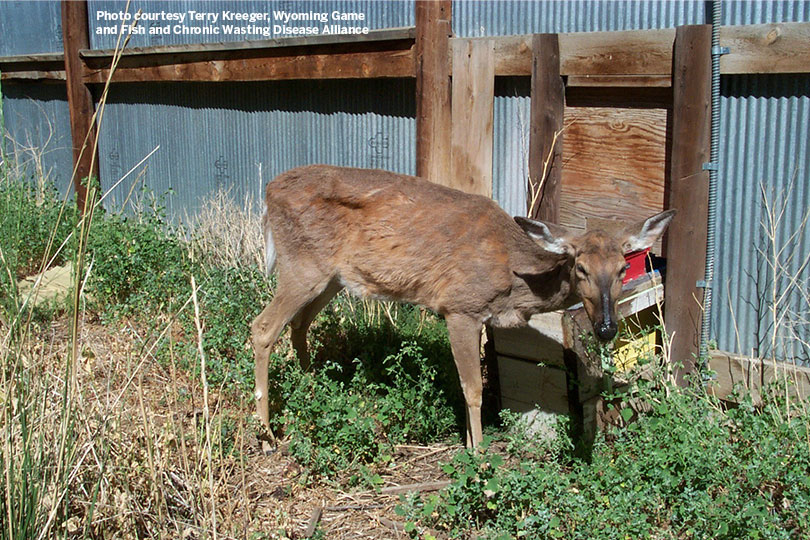By Jennifer Whitlock
Field Editor
A bill aimed at fighting the spread of chronic wasting disease (CWD) in cervids unanimously passed the U.S. House Agriculture Committee and awaits consideration on the House floor.
HR 5608, the Chronic Wasting Disease Research and Management Act, was introduced by House Agriculture Committee Ranking Member Glenn “GT” Thompson and Wisconsin Rep. Ron Kind.
In a statement, Thompson said HR 5608 is not only a critical piece of legislation but “a model for committee process” due to its bipartisan nature and unanimous support among committee members.
“I am proud of this bipartisan work and the extensive stakeholder input we sought along the way to craft a bill that will protect our cervid populations and provide the necessary support to better research and prevent CWD,” he said.
The bill would support state and Tribal efforts to develop and implement CWD mitigation strategies, as well as fund research to better detect and prevent the disease, according to Thompson.
Numerous sporting and wildlife management groups—including the National Wildlife Federation, National Deer Association, North American Deer Farmers Association and Wildlife Management Institute—support the legislation.
In Texas, CWD has spread across the state since first being detected in free-ranging mule deer in Far West Texas, near the Texas-New Mexico border. Since then, Texas Parks and Wildlife Department data show the disease has been found in 260 captive or free-ranging cervids, including white-tailed deer, mule deer, red deer and elk in 14 counties.
The Centers for Disease Control and Prevention (CDC) says CWD has been found in at least 25 states in the continental U.S. and in Canada.
First identified in captive mule deer at a Colorado research facility in 1967, CWD is a deadly neurological disease. The infection is thought to be caused by prions, or abnormal proteins suspected to damage normal prion proteins in the brain and spinal cord.
The incubation period can take over a year, and neurologic signs typically develop slowly. Clinical signs of infection may include progressive weight loss, stumbling or tremors, lack of coordination, excessive thirst and drooling, loss of appetite, teeth grinding and abnormal head posture.
There is no cure, and once CWD has been established in an area, the risk is likely to remain in the environment for years, according to the CDC. The prions are shed in bodily fluids like feces, saliva, blood and urine and can persist in soil, food or water for years.
To date, there is no evidence CWD poses a risk to humans or non-cervids. However, the World Health Organization and CDC recommend people not consume meat from infected animals.

